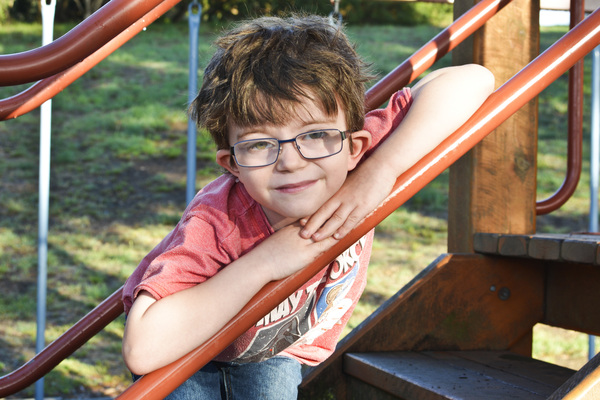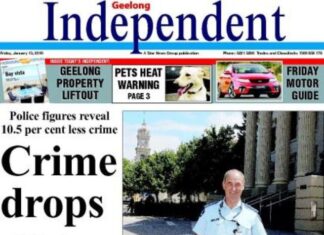By ALANA MITCHELSON
A Belmont mum is concerned for her son’s development after being denied a growth hormone to improve the symptoms of his genetic disorder.
After unknowingly living with Noonan syndrome her whole life, Miranda Laird has experienced firsthand the challenges that eight-year-old Morgan will face.
Noonan symptoms include a short stature, distinctive facial features, developmental delay, skeletal abnormalities, congenital heart disease and mild learning difficulties.
About one in 1000 people have the condition.
Ms Laird, who stands 1.47 metres tall, was unaware of the syndrome until her son’s diagnosis in 2013. She and her twin sister were diagnosed with it soon after.
“As well as height, growth hormone improves body composition and increases muscle mass. I think that would make everything a bit easier for Morgan,” Ms Laird said.
“I knew there was something different about him. Pretty much straight away I noticed a lot of similarities between Morgan and myself.
“Morgan’s nearly eight and he’s the size of a five-year-old. He’s just skin and bone.
“He doesn’t cope well with movement and he’s not as strong as other kids his age.”
Ms Laird said that, like her, Morgan had poor co-ordination, mobility issues and bruised easily.
“After confirming my diagnosis, it sort of explained my whole childhood.
“My legs sway whenever I sit down, I need a step to reach things in cupboards and when going car shopping, it’s always difficult to find one where you can see clearly out the back window.”
Ms Laird said Morgan had yet to complete an eligibility process for growth hormone.
Late last year he measured two millimetres outside the criteria for access to the hormone through the Pharmaceutical Benefits Scheme.
“Kids with this condition are being overlooked,” Ms Laird said.
“Before the new arrangements that came in place on 1 September, Morgan would have been eligible.
“In America they have a Noonan Syndrome Foundation which holds an annual conference where children and parents can learn about therapies and advances in the field.”
Ms Laird was unaware of any similar support group in Australia.
OZGROW Growth Hormone Research chairman and paediatric endocrinologist Mark Harris said an independent advisory committee previously gauged the suitability of borderline patients for access to the therapy.
“There’s no longer an option to appeal to an independent body of experts if a clinician’s application is knocked back,” Mr Harris said.
“I think it would be good to maintain some kind of independent body.
“What’s not ideal is someone without a clinical understanding ticking boxes as though every case is black and white – not everyone would necessarily fit into the standard category criteria.
“Velocity of growth is always the sticky point because all you can do is take measurements at certain points in time. The interpretation of these can sometimes be a bit pedantic.
“Given the hormone is considerably expensive, private treatment is not an option for many people.”
Research has identified growth benefits from early treatment.
February is Noonan Syndrome Awareness month.
More information is available at facebook.com/noonansyndromeawareness.









